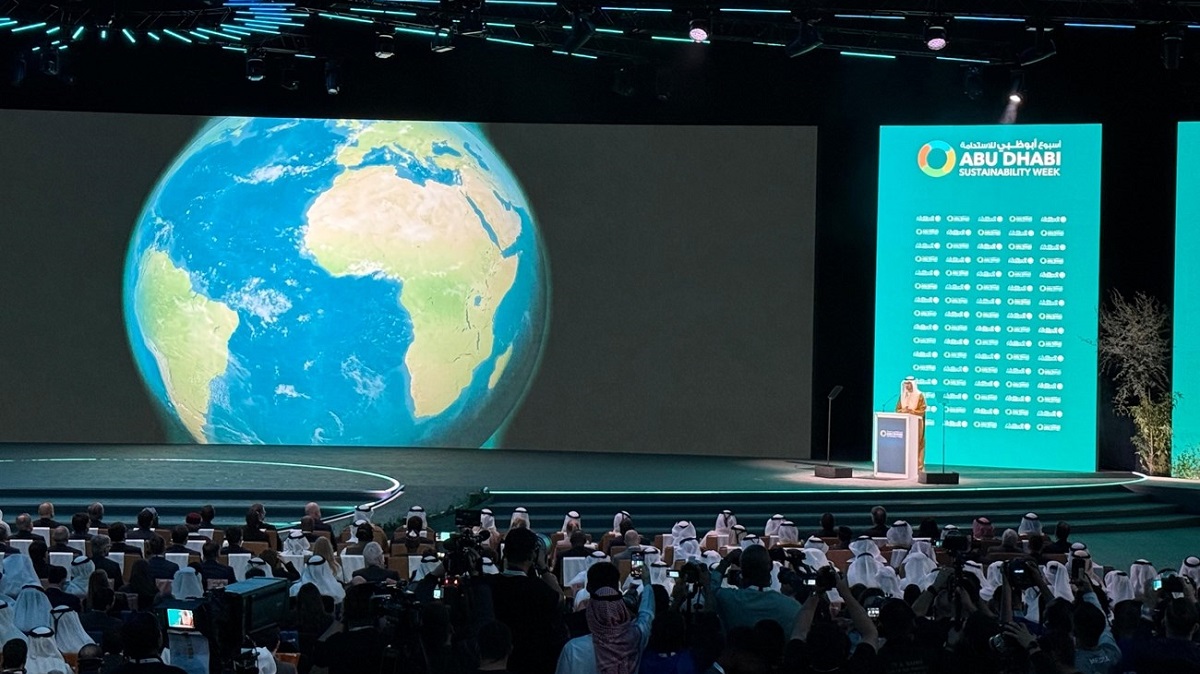Events around the world: World Future Energy Summit 2025
June 05, 2025

The World Future Energy Summit is a significant platform and a leading global business event that brings together leaders, policymakers, NGOs, investors, and innovators to promote a greener future with sustainable energy, clean technologies, and climate resiliency.
The 2025 summit was held at the Abu Dhabi National Exhibition Centre (ADNEC) in Abu Dhabi, United Arab Emirates, from 14 to 16 January 2025. It was held as part of Abu Dhabi Sustainability Week.
This year’s agenda strongly emphasizes AI’s transformative potential and the potential enhancement of its efficiencies. It also harnesses real-time AI for traffic management, reducing emissions, addressing climate-induced challenges, and focusing on clean and green energy.
The conference focused on investment in energy transition and grid requirements, routes to meeting net-zero ambitions, long-duration energy storage, green hydrogen and future hydrogen markets, and data transparency. Through expert discussions and presentations, the conference focused on the strategic approaches to meeting a country’s energy demands whilst increasing efficiency, reducing emissions, and embracing the cutting-edge technologies essential for sustainable sector growth.
Enhanced innovations to reduce desalination costs, advanced wastewater reuse methods, and smart water management technologies. Panels addressing MENA-Europe energy collaboration focused on the region’s potential for renewable energy, cross-border infrastructure initiatives, and the financial tools required to boost clean energy advancement.
The International Renewable Energy Agency (IRENA) organized many of these panel discussions and hosted experts. Other environmental organizations included Greenpeace MENA, Emirates Nature-WWF, and the International Solid Waste Association (ISWA).
Tadweer Group, Nextracker, and PwC were among the participants who provided industry and technology services. The summit’s core included government and intergovernmental organizations like the UAE Ministry of Energy & Infrastructure, as well as international organizations involved in sustainable energy.
Energy company Masdar was the host organization. DEWA (Dubai Electricity and Water Authority) and EWEC (Emirates Water and Electricity Company) also participated in the summit.
The 2025 submission of UNFCCC Nationally Determined Contributions (NDCs) could be crucial in shaping global energy strategies. As nations revise their decarbonization roadmaps, these NDCs might influence energy sector planning, capacity building, and low-carbon/net-zero targets.
Discussions about the feasibility of geothermal energy were also one of the main topics. CCS is crucial for states with significant carbon emissions, but making it financially viable is challenging.
Additional important topics discussed included the circular economy, waste management, recycling, reduction, and reuse, developing effective management systems, and preserving natural resources.
The Summit displayed a variety of water-related innovations, including AI-driven irrigation systems, blockchain for water management transparency, and cutting-edge nanotechnology in water treatment. This market will be worth over US$53 billion by 2031 and grow by 16.3 percent annually.
WFE 2025 highlighted arid regions’ water security challenges, including the Middle East and North Africa (MENA). It aimed to redefine water management in some of the world’s most water-stressed regions and reduce leakage across distribution systems, which supposedly accounts for 30 percent of water waste.
Against the backdrop of the MENA region facing mounting water scarcity, the World Future Energy Summit’s Water Conference served as a platform to discuss sustainable solutions in desalination, wastewater reuse, water network optimization, and smart water technologies , including leveraging Artificial Intelligence (AI) and IoT for real-time monitoring, leak detection, irrigation optimization and opportunities to transform wastewater into sustainable revenue-generating models.
The conference examined innovative developments and strategic insights to tackle a crisis exacerbated by climate change. The UAE’s National Climate Change Plan for 2050 aims to promote public-private partnerships in water management and desalination technologies.
The discussions incorporated findings from IRENA’s recent research on effective strategies for public-private collaboration and sustainable practices promoting renewable energy adoption.
The summit attracted participants from diverse backgrounds around the globe. It is a platform for collaboration between various sectors to drive the transition to a sustainable energy future.
Mumtaheen Shamsia follows global trade shows, international summits, and industry forums. With a keen eye for emerging trends and key market insights, she writes articles on those topics for Industry Insider.
Most Read

Electronic Health Records: Journey towards health 2.0

Making an investment-friendly Bangladesh

Understanding the model for success for economic zones

Bangladesh facing a strategic test

Bangladesh’s case for metallurgical expansion

How a quiet sector moves nations

A raw material heaven missing the export train

Automation can transform Bangladesh’s health sector

A call for a new age of AI and computing
You May Also Like
